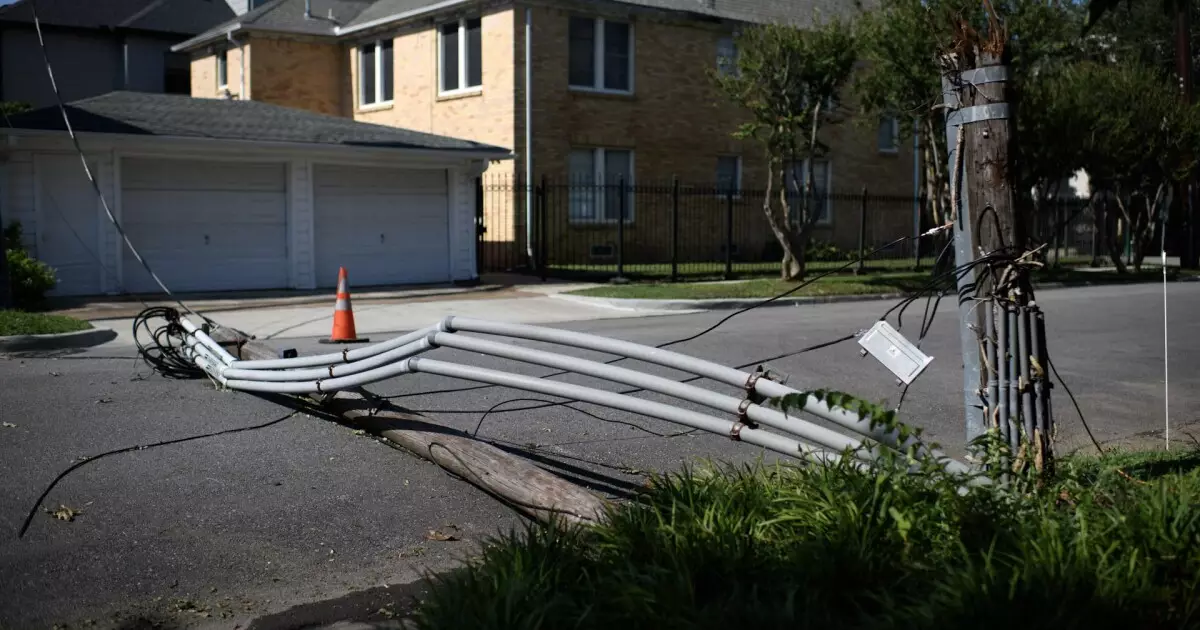Houston, Texas, the nation’s fourth-largest city, is confronted with a multitude of fiscal challenges exacerbated by recent natural disasters. As the city gears up for its fiscal 2025 budget, a combination of state aid and pressing economic realities is painting a bleak picture of Houston’s financial landscape. The city’s recovery from the catastrophic damages inflicted by two significant storms this year has placed immense pressure on its already stressed budget, pointing to deeper structural issues.
The recent debris from a series of severe storms, particularly the derecho windstorm in May and Hurricane Beryl in July, has driven Houston to seek significant financial assistance. Fortunately, Texas state officials have intervened by releasing $50 million to help cover the city’s cleanup costs. This collaboration between local and state governments represents a critical lifeline; however, it barely scratches the surface of what Houston needs to address its financial woes. Mayor John Whitmire’s negotiations in Austin highlight the urgency of the city’s fiscal needs, given that the Federal Emergency Management Agency (FEMA) is expected to reimburse only a fraction of the storm-related expenses.
While Houston is set to receive substantial federal funding, the city still anticipates having to allocate nearly $40 million from its general fund. The reliance on state and federal funds raises questions about the sustainability of Houston’s financial future, particularly as the mayor and city council explore avenues to balance an impending budgetary deficit that could exceed $230 million in the next fiscal year.
The ongoing fiscal difficulties have sparked heated discussions about property taxes. Houston City Council members have struggled with balancing the need for additional revenue against the risk of increasing taxes amidst a vulnerable taxpayer base. Council Member Sallie Alcorn’s advocacy for raising property tax rates reflects the city’s dire need for funds to maintain essential services and execute budgetary obligations. Although the city has decided to maintain its current rate of $0.55160 per $100 of taxable value for now, the specter of higher taxation looms as a possibility in the future.
Critics argue that such financial maneuvers could burden residents at an inopportune time, as many are still recovering from the economic impacts of the pandemic and storms. The challenges facing Houston are emblematic of broader trends seen across other Texas cities grappling with similar issues, from pension obligations to dwindling reserve funds.
One of the most significant pressures on Houston’s budget is its pension liabilities, particularly those related to its police and fire departments. In July, the city issued $612 million in general obligation bonds to fulfill court-approved settlements regarding overtime pay for firefighters. Compounded by the ongoing negotiations for police union contracts, these financial commitments are creating additional burdens. Houston’s Controller Chris Hollins warned that unresolved legal disputes regarding property tax revenue allocation could further diminish the city’s financial stability.
The mounting pressure to increase compensation for city workers, combined with the mismanagement of existing funds, creates a precarious financial outlook. Competitors, such as Dallas and Austin, face similar pension-related financial strains, indicating a trend that raises alarms for Texas cities. Each has initiated plans to bolster their pension systems, which underscores the systemic nature of these challenges.
Financial analysts have taken note of Houston’s destabilizing fiscal situation, resulting in downgraded outlooks from critical rating agencies such as Fitch Ratings and S&P Global Ratings. The notable depletion of reserves has prompted concerns about the city’s future creditworthiness, as both agencies cited an unstable outlook for their previously robust ratings. Houston’s general fund balance, expected to fall from an estimated $467.6 million at the end of fiscal 2024 to approximately $280 million in 2025, reinforces the urgency for prudent fiscal management.
The imminent risk we see is tied to the expiration of federal stimulus funds, which have offered temporary relief but are not a viable long-term solution. Analysts warn that Texas cities, including Houston, could find themselves facing significant fiscal cliffs if they fail to devise comprehensive revenue strategies.
As Houston navigates through its fiscal storm, stakeholders must adopt a holistic approach that addresses both immediate needs and long-term sustainability. With a looming budget deficit, rising pension obligations, and the unpredictability of natural disasters, the city must prioritize financial prudence and collaboration. The recent revelations about the financial pressures on Houston serve as a crucial reminder: effective governance calls for not just reactive strategies, but also proactive measures to mitigate risks in the future.


Leave a Reply